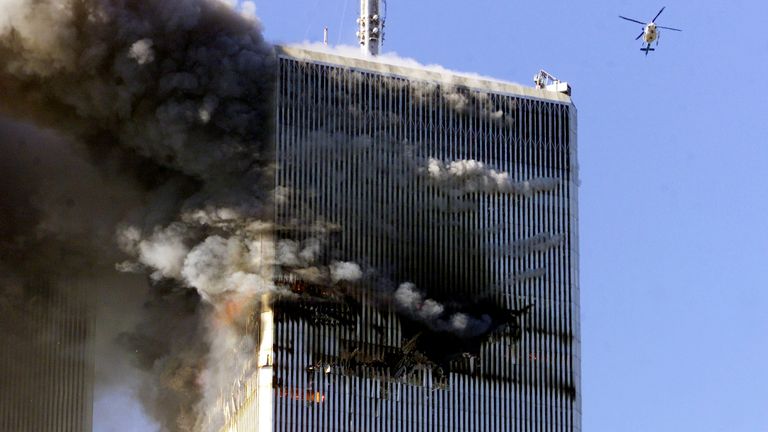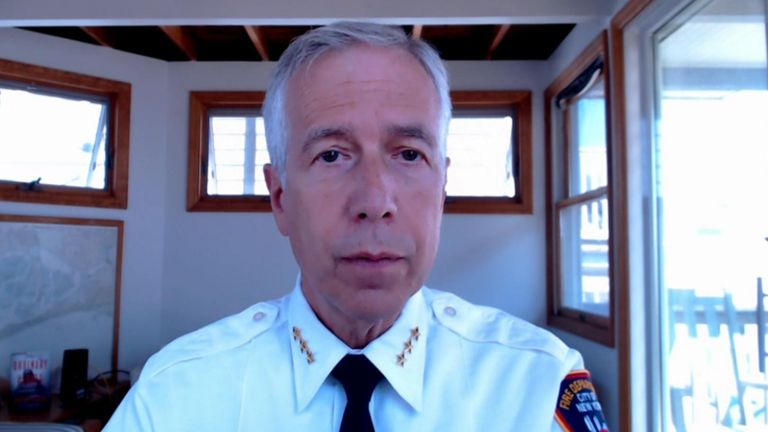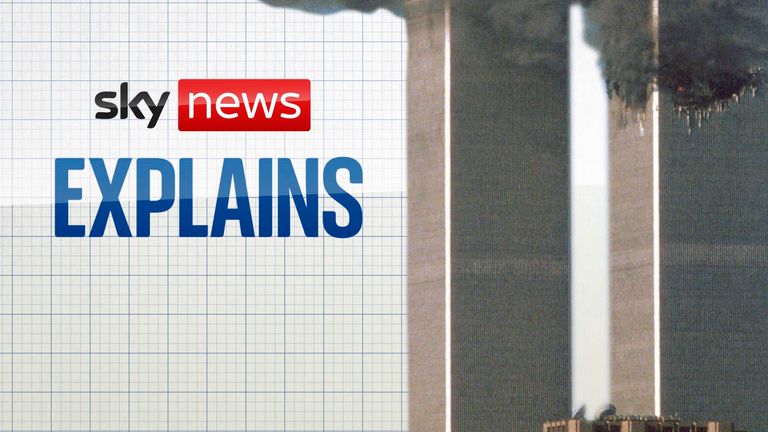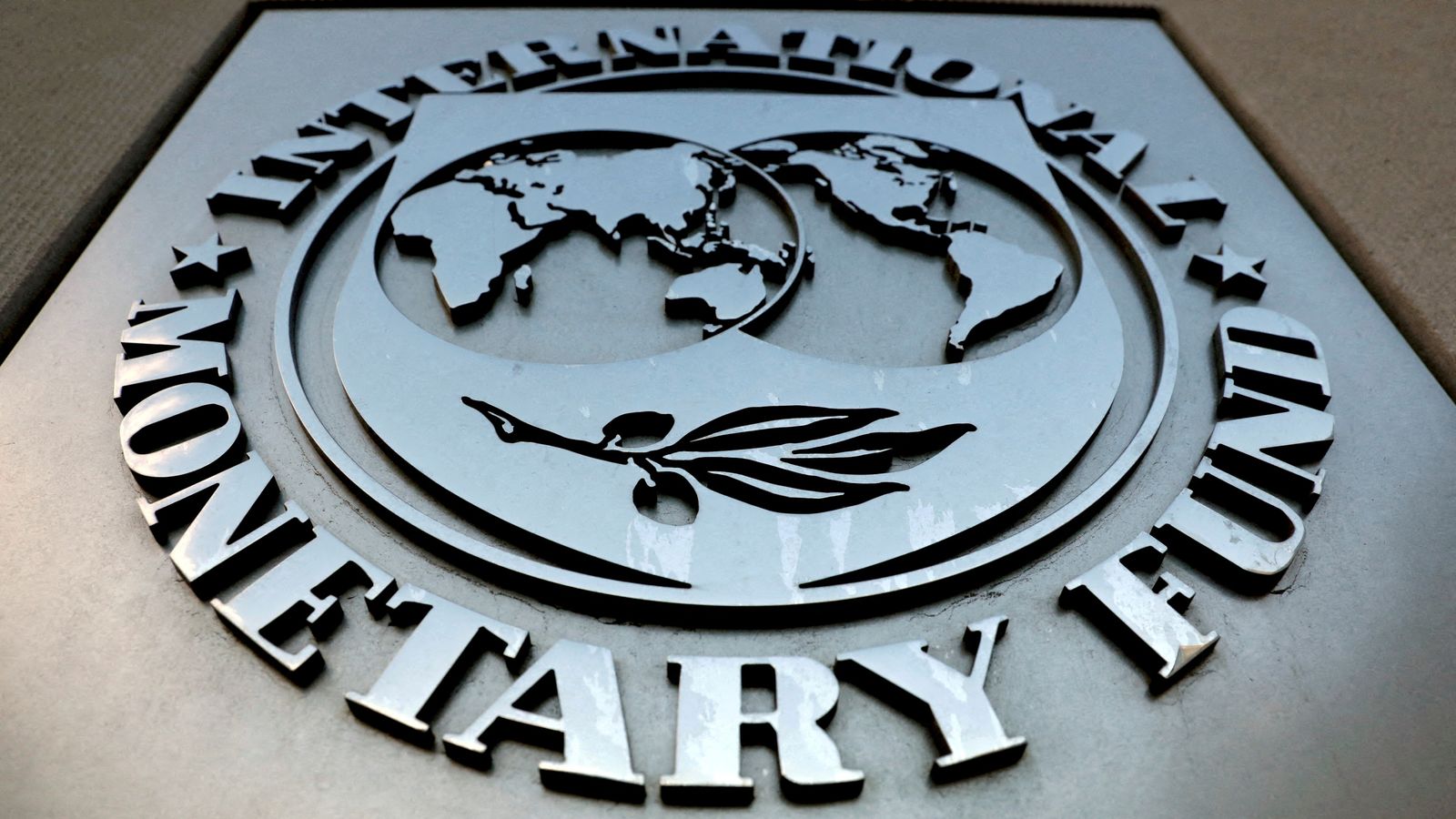In the spot where the Twin Towers once stood, there is now a calmness – a peace in the heart of New York City.
The only sound is water, cascading endlessly into two vast square voids, one for each tower.
They are voids that will never be filled, representing holes for so many who mourn the loss of so many more.
On the tip of Manhattan, the scene is set to reflect on nearly 3,000 lives lost and a moment that changed the world.
The ceremony will begin at 8.40am New York time (1.40pm UK) – six minutes before the first plane hit the north tower 20 years ago – on September 11 2001.
Former presidents Bill Clinton and Barack Obama will join President Joe Biden for a ceremony punctuated by six stark moments of silence: three to mark the planes hitting the two towers and the Pentagon in Washington, two to mark the collapse of each tower, and one to mark the moment the fourth plane came down in Shanksville, Pennsylvania.
President George W Bush will be in Shanksville for the ceremony there, and President Donald Trump will mark the day with a series of as-yet-unpublished stops.
Over the coming hours, relatives and survivors will share their stories and reflect on their individual loss.
Flight crews will gather in uniform, pausing for their lost colleagues – their friends.
Firefighters, many too young to remember 9/11, will pay their respects to those who ran towards danger to rescue those trapped in the towers, including the first responders who lost their lives.
Over two hours, the names of each of those to die that day will be read out, one by one.
Twenty years ago, President George W Bush was at Ground Zero, megaphone in hand, reflecting the mood of a nation consumed by a deep trauma and a bewilderment that demanded revenge.
“The people who knocked these buildings down will hear all of us soon,” he declared.
Who would have thought that presidential vow all those years ago would be a central thread through three more American presidencies and define our collective history in the subsequent two decades.
Long conflicts in Afghanistan, then Iraq, followed. A “war on terror” waged. By definition, it required a victory that would always be elusive.
So many lives were lost in the past two decades.
The US was consumed by revenge but also wrapped up in a desire to change and remake the world according to its own image and to achieve that by force.
Increasingly it proved to be a futile and dangerous objective that brought out the worst in America. In trying to export its own values, the US was in fact repudiating them.
Key moments would be proved over time to have been mistakes causing irrevocable damage.
The missed opportunities such as the failure to capture bin Laden in the Afghan mountains in November 2001. He was to escape into Pakistan and evade capture for a decade.
Policy decisions such as diverting attention away from Afghanistan to Iraq in 2003 on the elusive hunt for weapons of mass destruction.
Then there was the CIA rendition flights, the torture, the abuse of detainees at Abu Ghraib prison in Iraq and of course Guantanamo.
Twenty years after 9/11, 40 prisoners remain at Guantanamo. Most have not been charged, none have yet faced trial. They include the 9/11 mastermind, Khalid Sheikh Mohammed.
The latest inflection point in these past two decades has been Mr Biden’s chaotic retreat from Afghanistan. History is yet to judge the wisdom of that decision.
The legacy of 9/11 has been dramatic and it is enduring.
Twenty years might have helped individuals to begin to heal, but collectively, for America and well beyond, two decades of conflict has stirred so much and healed almost nothing.
Professor Bruce Hoffman, senior fellow at the Council for Foreign Relations, told me this week: “I think the sad truth of the matter is that if bin Laden were alive today, he’d be a happy man.
“Firstly, the enterprise that he commenced over three decades ago has withstood what really is the technologically most advanced military in the history of mankind and survived. It has continually overcome whatever setbacks have been meted out to it. And now that we see with the victory of the Taliban, the Islamic Emirate in Afghanistan, which was always bin Laden’s kind of pet project, has once again been resurrected.”
He added: “But more to the point, according to the US State Department list of foreign terrorist organisations, there are now four times as many Salafi jihadi groups that adhere to bin Laden’s ideology today than there were on 9/11.”
For New York, for America and well beyond, this will be painful reflection of such an extraordinary moment.















